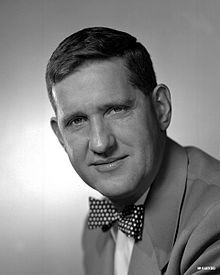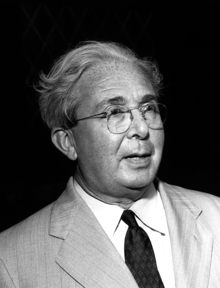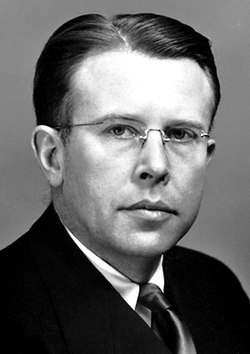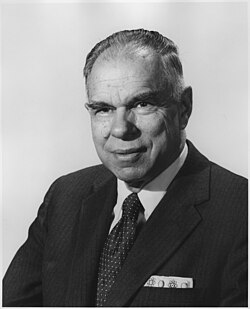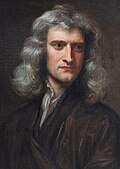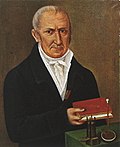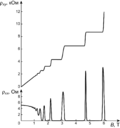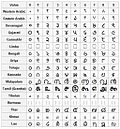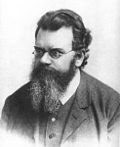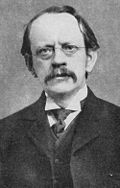Portal:Physics
The Physics Portal


Physics is the scientific study of matter, its fundamental constituents, its motion and behavior through space and time, and the related entities of energy and force. Physics is one of the most fundamental scientific disciplines. A scientist who specializes in the field of physics is called a physicist.
Physics is one of the oldest academic disciplines. Over much of the past two millennia, physics, chemistry, biology, and certain branches of mathematics were a part of natural philosophy, but during the Scientific Revolution in the 17th century, these natural sciences branched into separate research endeavors. Physics intersects with many interdisciplinary areas of research, such as biophysics and quantum chemistry, and the boundaries of physics are not rigidly defined. New ideas in physics often explain the fundamental mechanisms studied by other sciences and suggest new avenues of research in these and other academic disciplines such as mathematics and philosophy.
Advances in physics often enable new technologies. For example, advances in the understanding of electromagnetism, solid-state physics, and nuclear physics led directly to the development of technologies that have transformed modern society, such as television, computers, domestic appliances, and nuclear weapons; advances in thermodynamics led to the development of industrialization; and advances in mechanics inspired the development of calculus. (Full article...)

A mechanical filter is a signal processing filter usually used in place of an electronic filter at radio frequencies. Its purpose is the same as that of a normal electronic filter: to pass a range of signal frequencies, but to block others. The filter acts on mechanical vibrations which are the analogue of the electrical signal. At the input and output of the filter, transducers convert the electrical signal into, and then back from, these mechanical vibrations.
The components of a mechanical filter are all directly analogous to the various elements found in electrical circuits. The mechanical elements obey mathematical functions which are identical to their corresponding electrical elements. This makes it possible to apply electrical network analysis and filter design methods to mechanical filters. Electrical theory has developed a large library of mathematical forms that produce useful filter frequency responses and the mechanical filter designer is able to make direct use of these. It is only necessary to set the mechanical components to appropriate values to produce a filter with an identical response to the electrical counterpart. (Full article...)
Did you know -
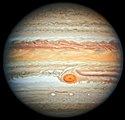
- ...that if you ever saw Jupiter's magnetic field from Earth, it would appear five times larger than the full moon?
- ...that the impact of a raindrop would be fatal if not for the property of fluid flow known as terminal velocity?
- ...that transits of Venus occur in a 243-year cycle?
Selected image -
The Hubble Deep Field (HDF) is an image of a small region in the constellation Ursa Major, constructed from a series of observations by the Hubble Space Telescope. It covers an area 2.5 arcminutes across, two parts in a million of the whole sky
- The Hubble Deep Field
- Details from the Hubble Deep Field illustrate the wide variety of galaxy shapes, sizes and colours found in the distant universe.
Related portals
March anniversaries
- 1 March 1966 – first spacecraft crash-lands on Venus
- 14 March 1879 – Albert Einstein's birthday
- 14 March 2018 – Stephen Hawking died
- 20 March 1942 - Gabriele Veneziano's Birthday
- 24 March 1993 – Comet Shoemaker–Levy 9 discovered
General images
Categories

Fundamentals: Concepts in physics | Constants | Physical quantities | Units of measure | Mass | Length | Time | Space | Energy | Matter | Force | Gravity | Electricity | Magnetism | Waves
Basic physics: Mechanics | Electromagnetism | Statistical mechanics | Thermodynamics | Quantum mechanics | Theory of relativity | Optics | Acoustics
Specific fields: Acoustics | Astrophysics | Atomic physics | Molecular physics | Optical physics | Computational physics | Condensed matter physics | Nuclear physics | Particle physics | Plasma physics
Tools: Detectors | Interferometry | Measurement | Radiometry | Spectroscopy | Transducers
Background: Physicists | History of physics | Philosophy of physics | Physics education | Physics journals | Physics organizations
Other: Physics in fiction | Physics lists | Physics software | Physics stubs
Physics topics
Classical physics traditionally includes the fields of mechanics, optics, electricity, magnetism, acoustics and thermodynamics. The term Modern physics is normally used for fields which rely heavily on quantum theory, including quantum mechanics, atomic physics, nuclear physics, particle physics and condensed matter physics. General and special relativity are usually considered to be part of modern physics as well.
More recognized content
Associated Wikimedia
The following Wikimedia Foundation sister projects provide more on this subject:
 Commons
Commons
Free media repository Wikibooks
Wikibooks
Free textbooks and manuals Wikidata
Wikidata
Free knowledge base Wikinews
Wikinews
Free-content news Wikiquote
Wikiquote
Collection of quotations Wikisource
Wikisource
Free-content library Wikiversity
Wikiversity
Free learning tools Wikivoyage
Wikivoyage
Free travel guide Wiktionary
Wiktionary
Dictionary and thesaurus
Sources
Portals on Wikipedia







